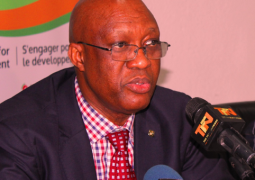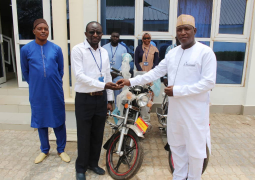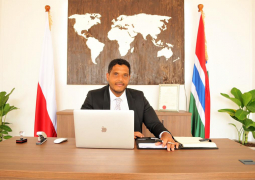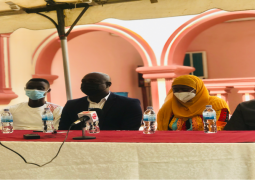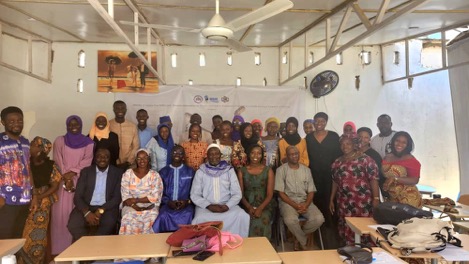
The lecture, convened on Friday, 26 April 2024 at Bakau, witnessed the participation of victims of Jammeh, law students of University of The Gambia and the media. National institutions like the National Center for Civic Education (NCCE), National Center for Arts and Culture (NCAC) and Ministry of Justice representatives delivered lectures on the theme: Memorialisation Initiatives – exploring what victims want for memorialisation and how the government will / should be able to provide for a memorialisation programme that’s holistic, meaningful and sustainable.
The chief civic education officer of NCCE, Mr Yusupha Bojang, said a national policy on memorialisation of the Jammeh victims is in order, if the country is to make serious transitional justice aspect that encompasses the preservation of dignified legacies of victims who opposed dictatorship, sacrificed their lives and liberties in the process, and ensured that their names are recorded in history as such.
Former Gambian President Yahya Jammeh came to power in a military coup. During his 22-year rule, hundreds of Gambians, including political opponents, members of the armed forces, students, and civilian population became victims of extrajudicial killings, disappearance, torture, false imprisonment, just as journalists, migrants, and civil servants. Among his victims also are survivors of his infamous HIV, infertility and hypertension treatments, many of whom succumbed to the treatment; as well as those of sexual and gender based violence, and “witch hunts.”
A government established Truth, Reconciliation and Reparations Commission in 2018 had recommended in a Report in 2020, that a memorialisation of some sort is done in honouring the lives and legacies of these victims to ensure a “Never Again” promise.
In the absence of such a policy, Mr Bojang is convinced that the controversy raised by critics about “selective naming” of victims of human rights violation to national monuments, will be avoided, or minimal, just as concerns of political interfere in the implementation of the TRRC recommendations and government White Paper.
“Denials or justification of these acts of violations will be there but with persistence, we will overcome those and achieve the national goal of the Never Again promise,” he said.
Mam Degen Faye, State Counsel at the Ministry of Justice, said the TRRC Implementation Unit set up at the Ministry is small and is faced with both human and financial resources availability to fully implement the government White Paper with the desired pace and effectiveness envisaged by victims.
“However, memorialisation is as important as reparations and prosecutions. We all have a duty to remember, recognise and value the legacies of those who sacrificed their lives in resisting dictatorship and paid ultimate prices for doing so,” she said, noting that ongoing reforms and enactment of necessary legislations by the Ministry of Justice are all testament to government efforts in ensuring a “Never Again” of what transpired under the Jammeh regime.
Mr Hassoum Ceesay, executive director of the National Center for Civic Education (NCCE), also called for a national legislation to guide the memorialisation of the victims so that once implemented, it is there for eternity and not subject to change based on any future political choices in the country.


